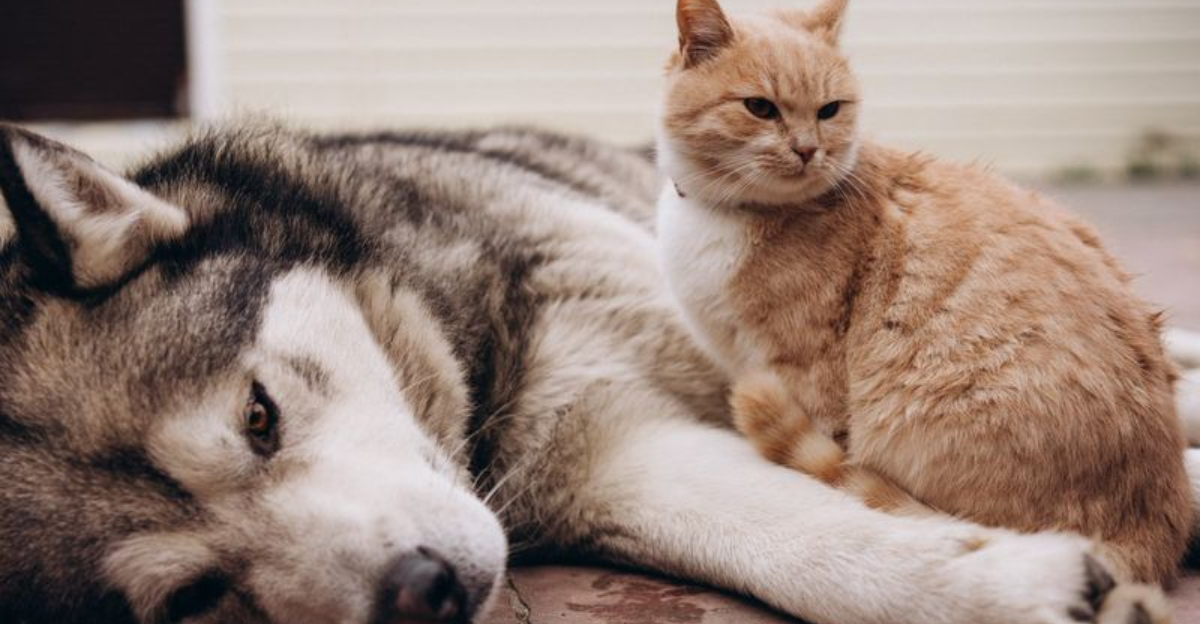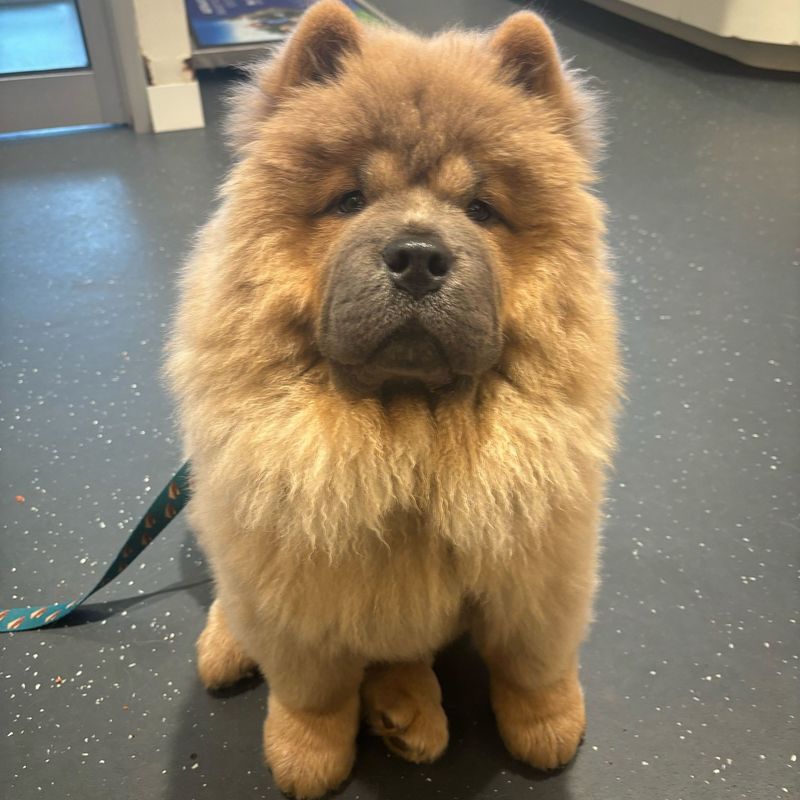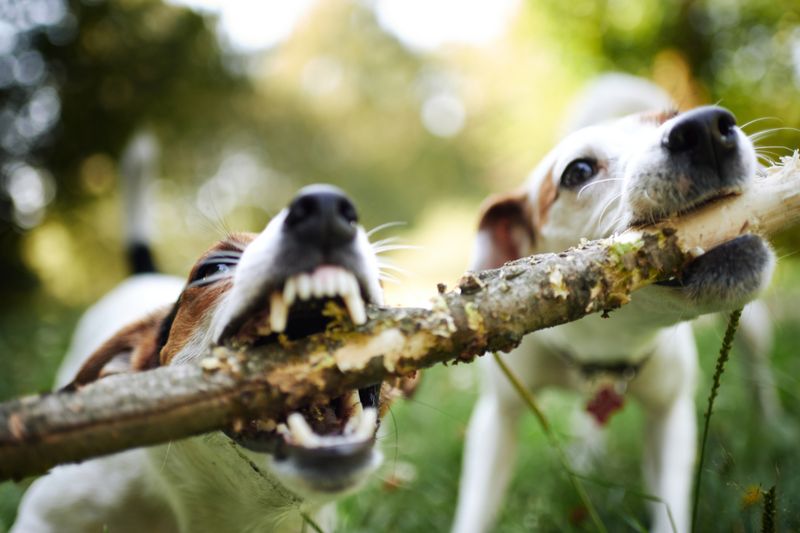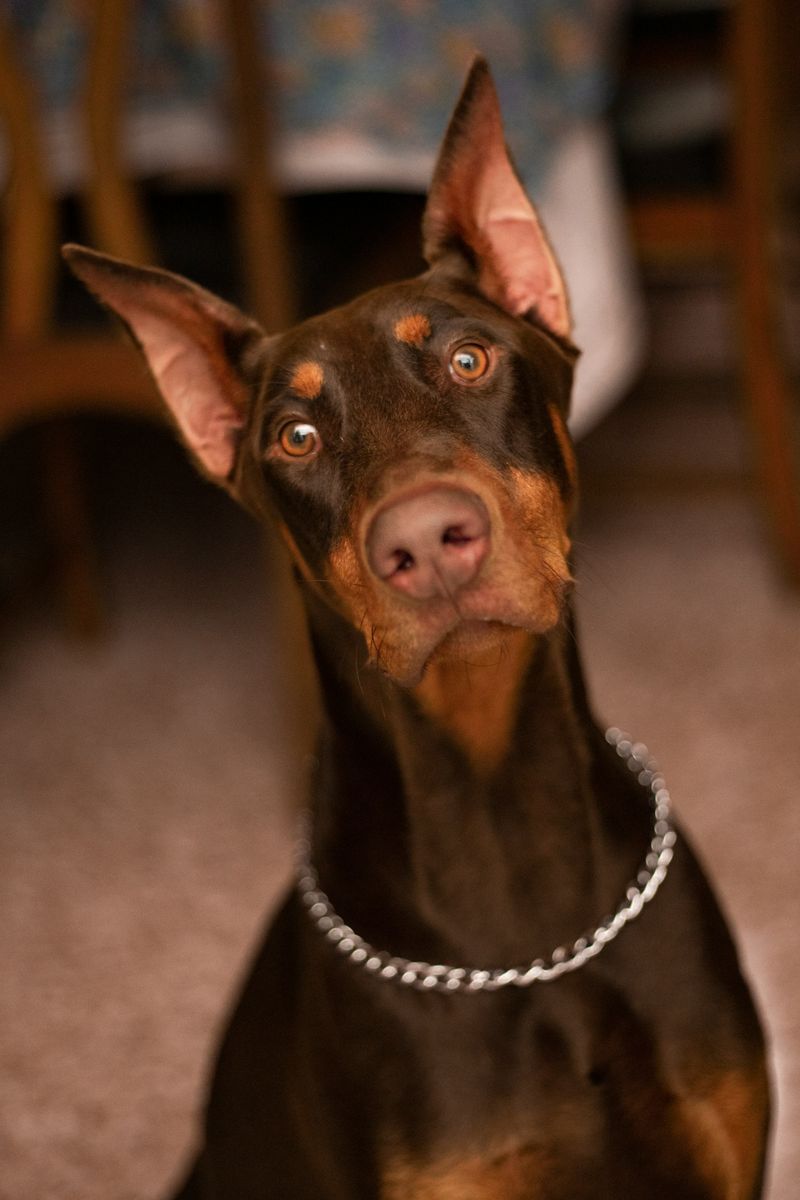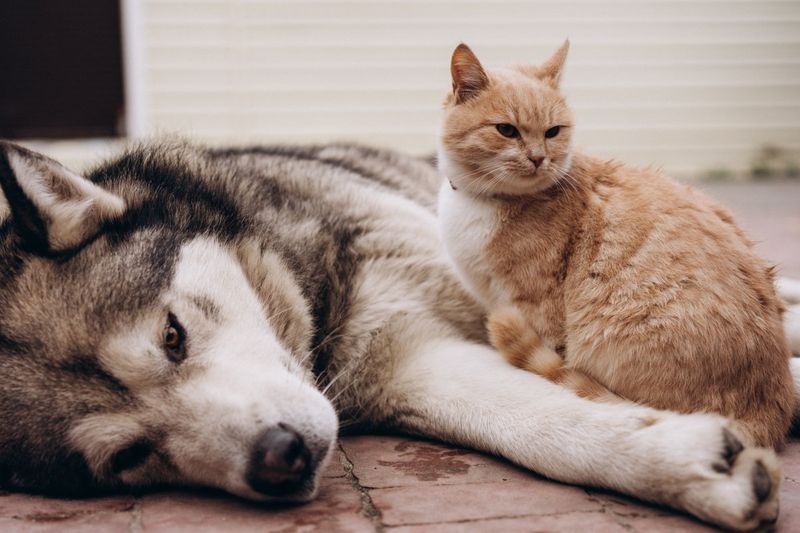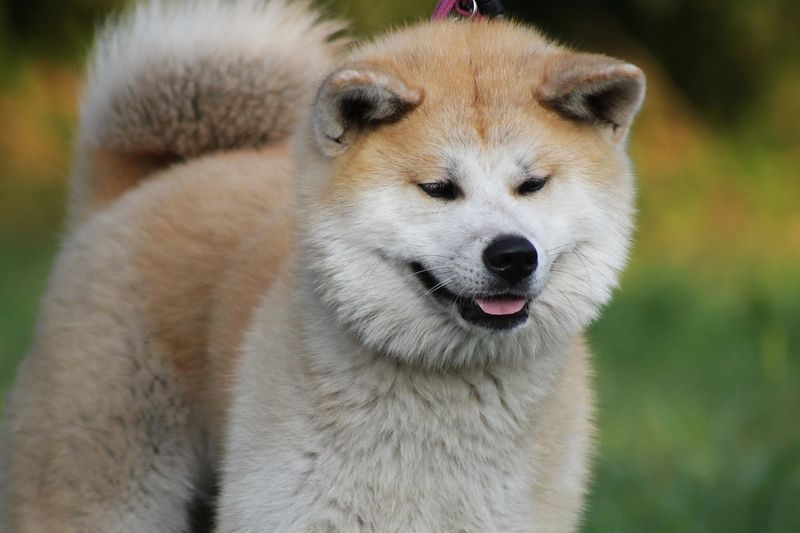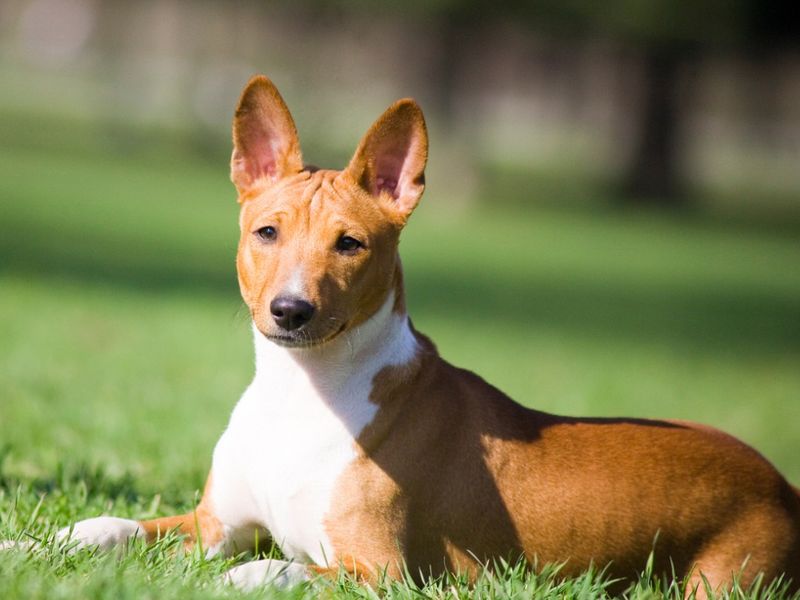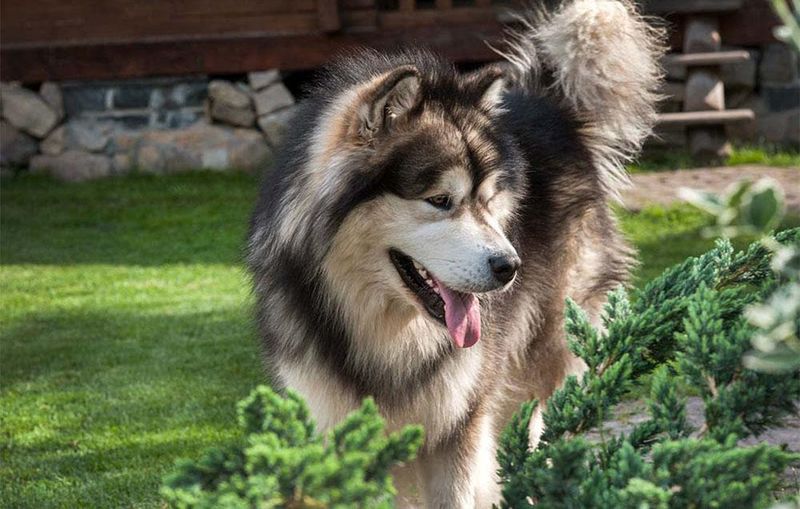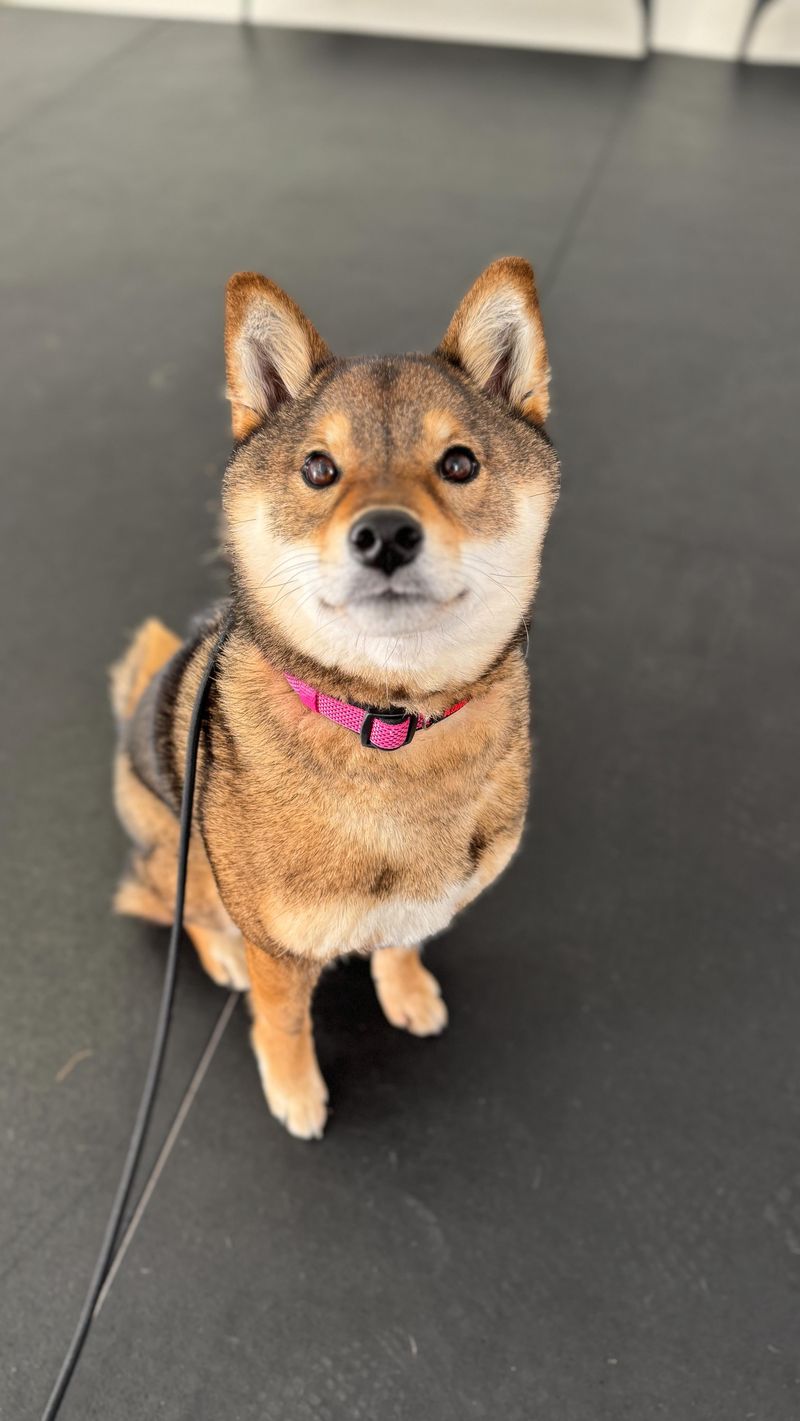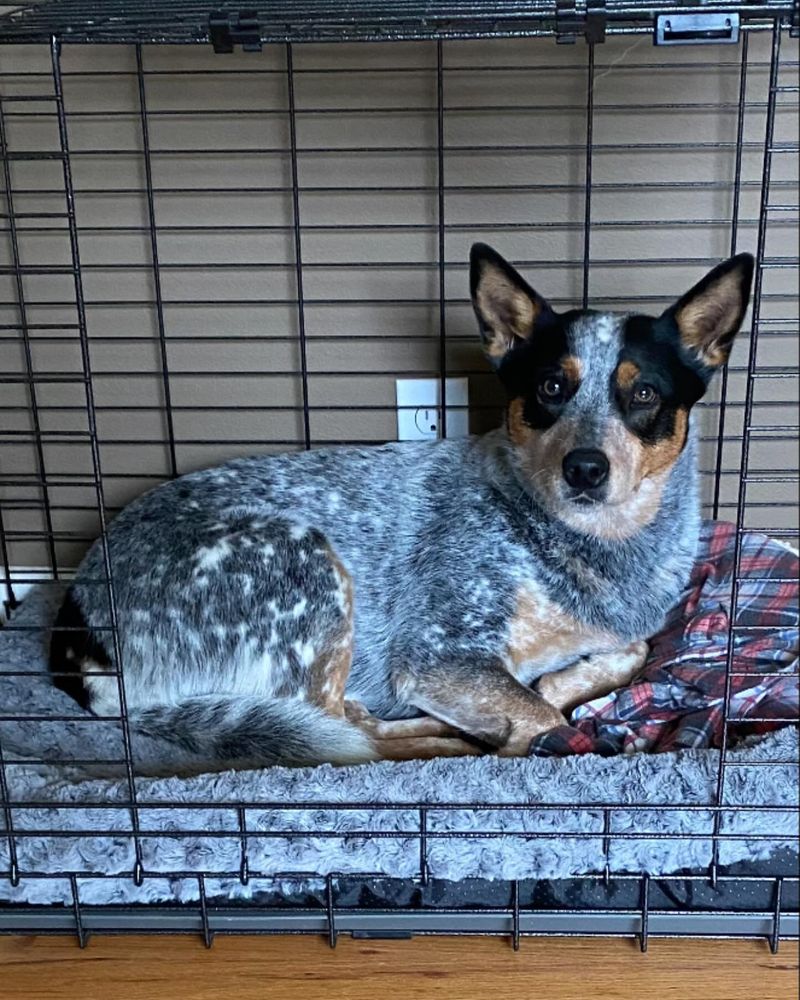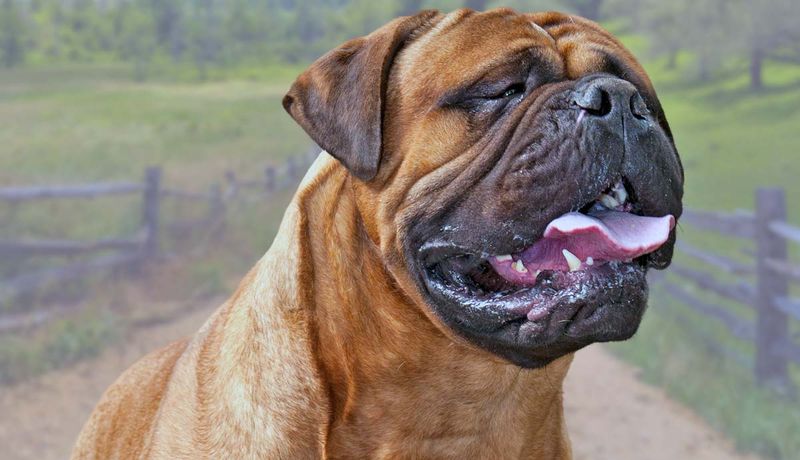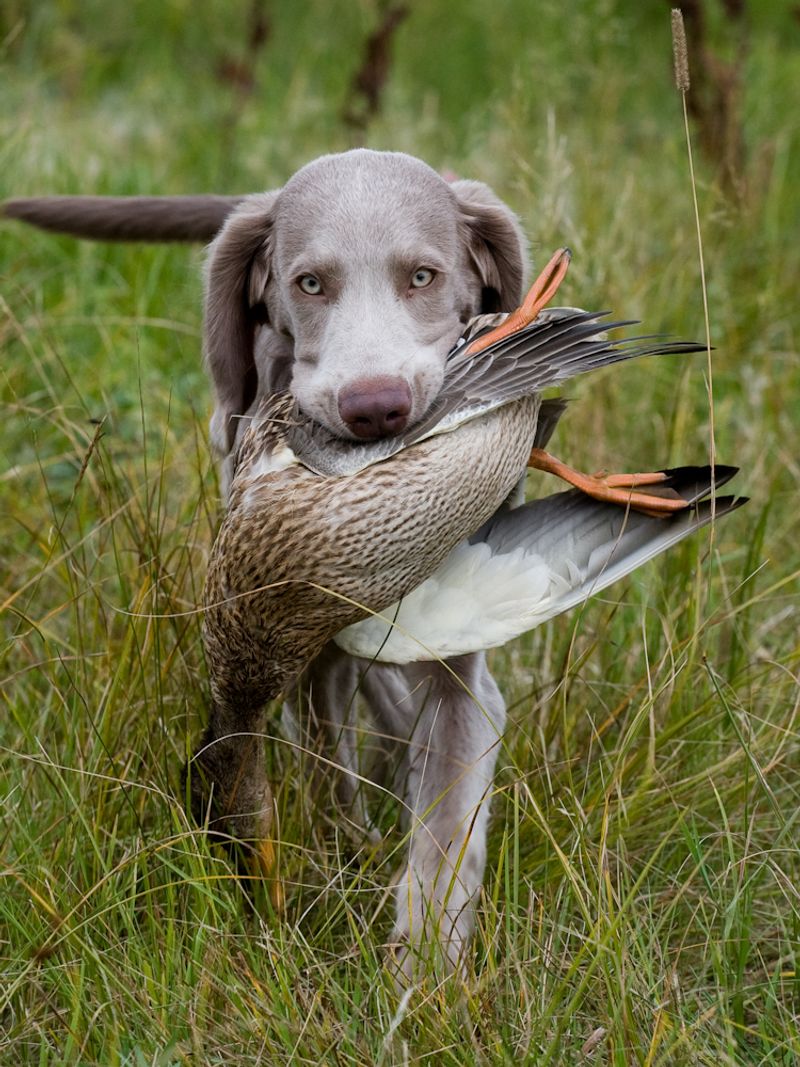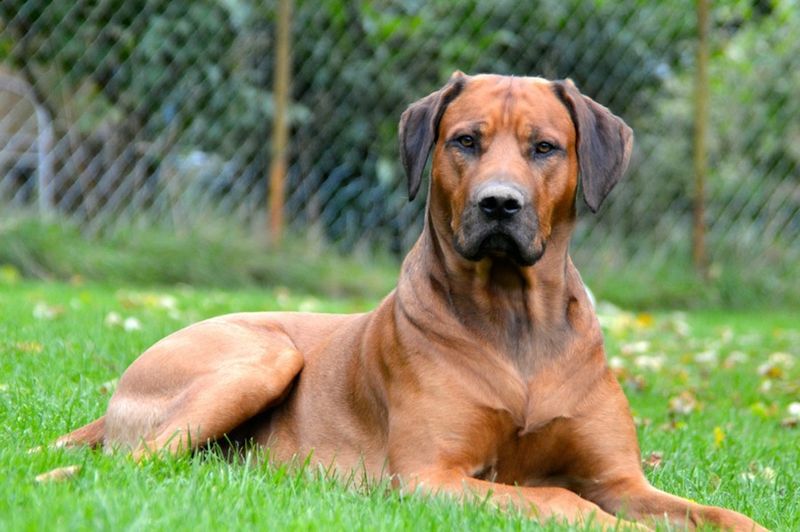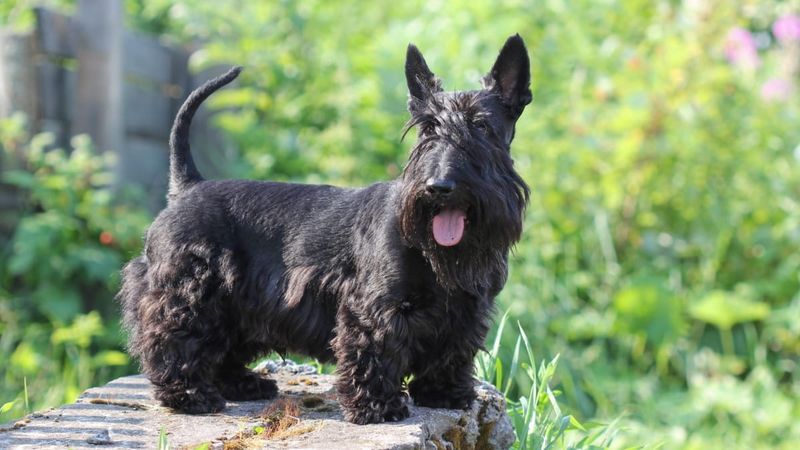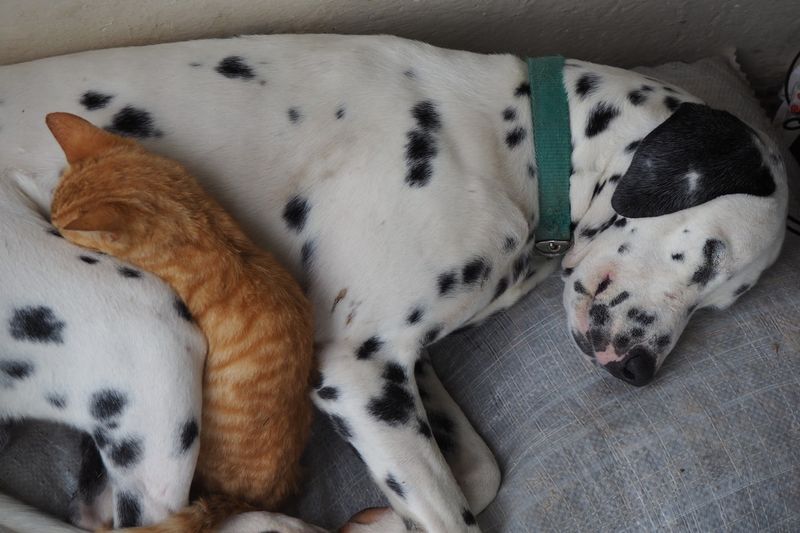Dogs are often considered man’s best friend, yet not all of them play well with others, especially when it comes to cohabitating with other pets. Some breeds have inherent traits that make them less sociable with other animals. Understanding these breeds can help you make informed decisions about pet compatibility in your home. Here is a detailed look at 15 dog breeds that might face challenges in getting along with other pets. This guide aims to highlight each breed’s unique characteristics and possible reasons for their solitary nature.
Chow Chow
Chow Chows are distinguished by their lion-like mane and blue-black tongues. This breed carries an air of aloofness, often described as cat-like in its independence. Historically used in China as guard dogs, Chow Chows can be territorial and protective. This innate guarding instinct may lead to conflicts with other pets, especially if they perceive them as intruders. Their reserved nature means they require careful socialization to get along with other animals. Owners must ensure consistent training to manage their dominant tendencies.
Jack Russell Terrier
Jack Russell Terriers are small dogs with big personalities. Originally bred for fox hunting, they possess an intense energy and strong prey drive. Their intelligence and lively nature make them entertaining companions, yet these traits can lead to challenges in multi-pet homes. Jack Russells love to chase and can become fixated on other animals, leading to potential conflicts. Proper training and ample exercise are essential to channel their energy positively. Without these outlets, they may not coexist peacefully with other pets.
Doberman Pinscher
The Doberman Pinscher exudes strength and elegance with its sleek physique and alert demeanor. Bred in Germany for protection, Dobermans have a natural guarding instinct. Their loyalty to family is unmatched, but this might not extend to other pets. They can be dominant and territorial, leading to incompatibility with unfamiliar animals. Early socialization and training are crucial to tame their protective nature. While they can coexist with other pets, care must be taken to introduce them properly to prevent territorial disputes.
Siberian Husky
The Siberian Husky is known for its striking appearance and boundless energy. With origins in the cold Siberian region, these dogs were bred for endurance and strength. While their wolf-like appearance captures attention, it also hints at their independent nature. Huskies often have a strong prey drive, making them prone to chase smaller animals. Although they are affectionate with humans, their instinctual behavior may not mesh well with other pets. Their need for a pack structure can lead to dominance issues in multi-pet households.
Akita
Akitas are noble dogs with a strong sense of loyalty and protection. Originating from Japan, they were used as hunting and guard dogs, traits that persist today. Akitas are often wary of strangers and other animals, making them less adaptable to multi-pet households. Their dominant personality can lead to confrontations with other pets. Despite their aloofness, Akitas form strong bonds with their families. To foster harmony with other animals, consistent training and early socialization are essential, although challenges may remain.
Basenji
Basenjis, known as the “barkless dogs,” have a reputation for being independent and curious. Originating from Africa, they were used for hunting due to their keen sense of sight and smell. Their independent nature can make them less inclined to mix with other pets. Basenjis have a high prey drive and can be quite stubborn. While they are affectionate with their families, their aloofness with other animals can lead to challenges. Socialization from a young age is key to managing their interactions with other pets.
Alaskan Malamute
Alaskan Malamutes are known for their strength and endurance, traits inherited from their sled-pulling ancestors. These dogs have a friendly demeanor with people but can exhibit dominance towards other animals. Their strong prey drive and pack mentality can lead to conflicts in multi-pet households. Malamutes require strong leadership and training to ensure they coexist peacefully with other pets. Despite their challenges, they offer loyal companionship to those who understand their complex nature and provide adequate socialization.
Shiba Inu
Shiba Inus are small, agile dogs known for their spirited personality and independence. Originally from Japan, Shibas were used for hunting small game, which contributes to their strong prey drive. They can be aloof and suspicious of other animals, often preferring to be the only pet. Their stubbornness requires patient and consistent training. While Shibas are loyal to their families, their interactions with other pets can be unpredictable. Ensuring early socialization is crucial to help manage their interactions with other animals.
Australian Cattle Dog
The Australian Cattle Dog, known for its intelligence and agility, is a natural herder. Developed in Australia for managing cattle, they have a strong work ethic and protective instinct. These traits can lead to challenges in multi-pet homes, as they may try to herd other animals. Their high energy and alertness require active engagement and training. Without proper outlets, their instinctual behavior can become problematic. While they are loyal and protective, their interactions with other pets need careful management and supervision.
Bullmastiff
Bullmastiffs are gentle giants with a strong protective instinct. Originally bred to guard estates, they exhibit a natural wariness of strangers and other animals. This protective nature can lead to territorial behavior, making them less compatible with other pets. Bullmastiffs require early socialization to mitigate their guarding tendencies. Despite their imposing size, they are affectionate with their families. However, their interactions with other animals should be supervised. Proper training can help them adapt, but challenges may still arise.
Dachshund
Dachshunds are small dogs with big personalities, famous for their long bodies and short legs. Originally bred for hunting badgers, they possess a strong prey drive and fearless nature. These traits can lead to confrontations with other pets, especially smaller animals. Dachshunds require proper socialization to ensure harmonious relationships with other pets. While they are loyal and affectionate with their families, their stubborn nature can present challenges. Consistent training and patience are key to managing their interactions successfully.
Weimaraner
Weimaraners are elegant dogs with a strong hunting instinct. Known for their distinctive gray coats, they were originally bred for hunting large game. This history contributes to their strong prey drive, which can lead to issues with other pets. Weimaraners are energetic and require ample exercise to satisfy their instincts. When not adequately stimulated, they may exhibit destructive behavior, particularly towards smaller animals. Proper training and socialization from an early age are essential to manage their interactions with other pets.
Rhodesian Ridgeback
Rhodesian Ridgebacks are strong and independent dogs with a distinctive ridge of hair along their backs. Originally bred in Africa to hunt lions, they possess a strong prey drive and protective nature. These traits can make them less compatible with other pets, particularly smaller animals. Ridgebacks are loyal and affectionate with their families but require proper socialization to interact well with other animals. Their dominant personality can lead to confrontations if not managed properly. Training and supervision are crucial for peaceful coexistence.
Scottish Terrier
Scottish Terriers, or Scotties, are small yet determined dogs known for their distinctive look and feisty nature. Bred in Scotland to hunt vermin, they have a strong prey drive and can be territorial. Scotties often prefer their own company, making them less compatible with other pets. While they are devoted to their families, their interactions with other animals can be unpredictable. Ensuring early socialization and consistent training is important to manage their behavior. Scotties thrive with patient owners who understand their independent streak.
Dalmatian
Dalmatians are known for their distinctive spotted coats and high energy. Originally bred as carriage dogs, they have a strong instinct to guard and protect. This protective nature can lead to issues with other pets, especially if they feel their territory is threatened. Dalmatians require plenty of exercise and mental stimulation to thrive. Without these outlets, they can become restless and may not get along with other animals. Proper socialization and training are crucial to ensuring they live harmoniously in multi-pet households.
